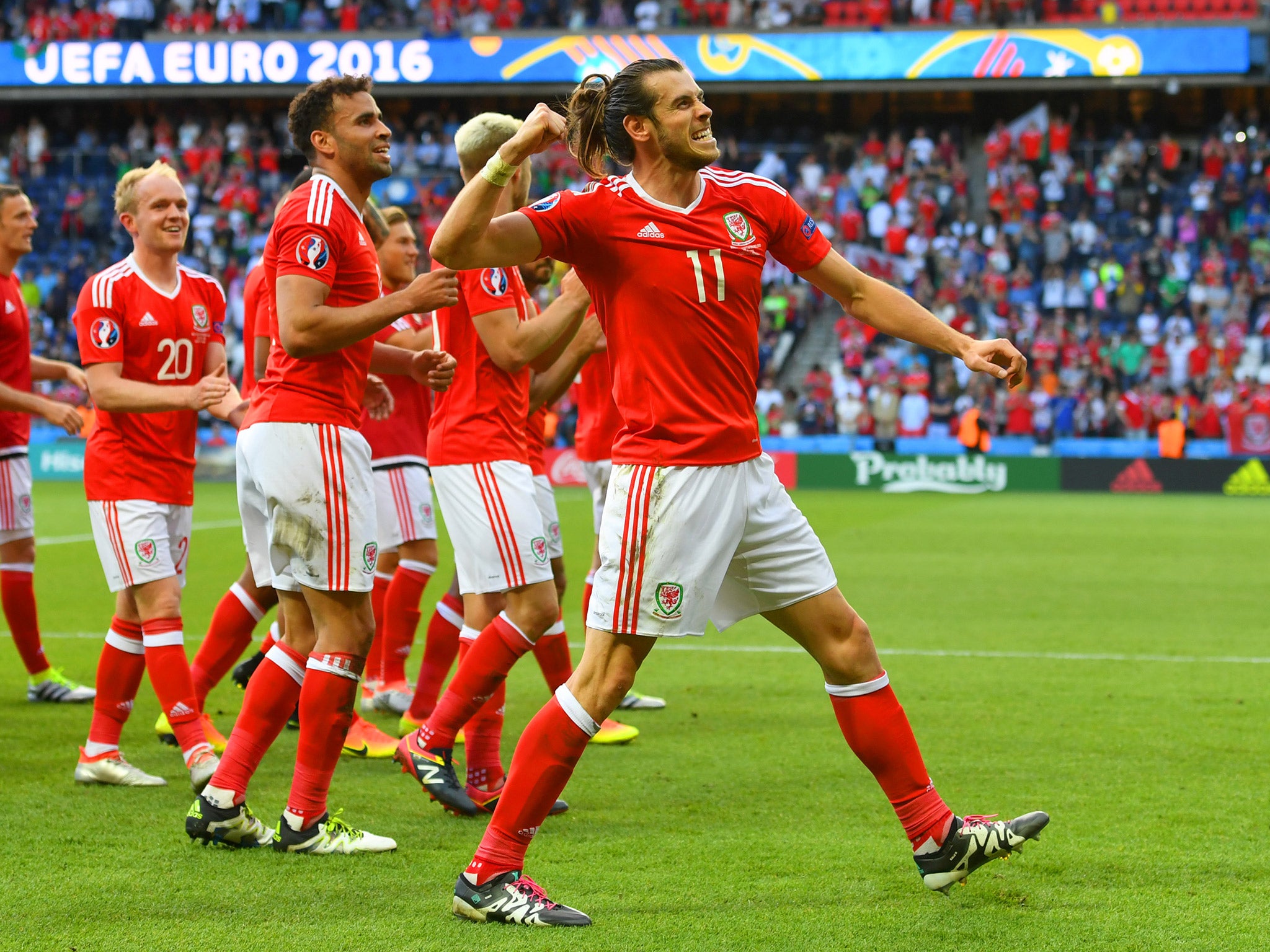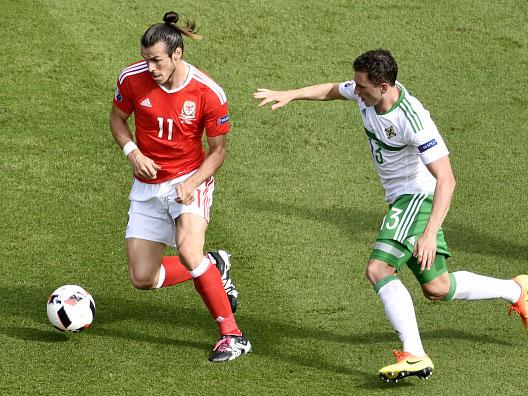Wales vs Northern Ireland: Gareth Bale proves why winners need just one moment to change history
Bale is single-handedly becoming one of his nation's greatest sporting contributors, even if he failed to shine in the last-16 1-0 win over Northern Ireland

Your support helps us to tell the story
From reproductive rights to climate change to Big Tech, The Independent is on the ground when the story is developing. Whether it's investigating the financials of Elon Musk's pro-Trump PAC or producing our latest documentary, 'The A Word', which shines a light on the American women fighting for reproductive rights, we know how important it is to parse out the facts from the messaging.
At such a critical moment in US history, we need reporters on the ground. Your donation allows us to keep sending journalists to speak to both sides of the story.
The Independent is trusted by Americans across the entire political spectrum. And unlike many other quality news outlets, we choose not to lock Americans out of our reporting and analysis with paywalls. We believe quality journalism should be available to everyone, paid for by those who can afford it.
Your support makes all the difference.The very peripheral part he played in his country’s biggest football moment in nearly 50 years is of no consequence now. History will only record that Gareth Bale delivered the cross of deadly weight and accuracy that took Wales to a Euro 2016 quarter-final.
His contribution to Welsh sport is reaching such a level that he can lay claim to a place, at least, in the debate about who is the little nation’s greatest contributor of all time. Hyberbole, some might say, when you consider another of those in that mix, who is remembered for his feats at this stadium, too. It’s 41 years since Gareth Edwards contributed a try at the Parc des Princes in the 25-10 win for Wales, which set them on their way to a Grand Slam. But Bale is single-handedly building the notion that ‘Welsh football’ and ‘winners’ are not mutually exclusive terms. Edwards, Barry John and a legion of the rugby greats had other world beaters for company.
Cliff Jones, the original Welsh wizard, delivered plenty too, though his Welsh side – beaten by Brazil in the 1958 World Cup quarter finals – did not lean so heavily on one man, either. All that is a national conversation to be had in the six days before a Lille quarter-final where the opponents on Friday may be Belgium, a side who may consider the Welsh to be a nemesis.
For now, let it just be said that Wales were in desperate need of salvation when Bale took a ball Aaron Ramsey had swept out left and measured it through to the six-yard box at pace, dragging Gareth McAuley into placing it past his goalkeeper as Hal Robson-Kanu lurked.
They seemed destined to heading home at that stage, just as they had for the length and breadth of an afternoon on which they were, frankly, second best. Bale will take the headlines as he has throughout the Welsh journey, though it was the player who has barely permeated the consciousness of the general watching public these past two weeks who deserves them most.
The comments about Steven Davis made by his teammate Kyle Lafferty heading into this match barely elicited a published word outside of Northern Ireland and would have doubtless been laughed away if they had. “Steven Davis is our Gareth Bale,” the striker said. But what Davis, wearing No 8, offered as a No 10 was delivered with such unaffected simplicity that you wonder why most of those with a casual interest in the Premier League could probably not even name him as a Southampton player. He worked relentlessly in the depths of midfield, doing much of the pressing which made this such a nervous, error-strewn 90 minutes for Wales. And then he advanced up ahead to play off Lafferty - laying-off, linking, ferrying the ball to the flanks – in the kind of individual performance which was beyond any wearing the red of Wales.
“He just doesn't get recognised for what he does,” Lafferty reflected on Friday, remembering the huge hole at the heart of the Irish team when Davis was missing against Romania, during qualifying. At 31, Davis is not in first flush of footballing youth but more might look out for him now. His part meant an utter deconstruction of the predicted narrative of the match - about the Northern Irish being on their uppers, soaking up pressure, and grabbing what they could. That just did not come to pass. The creative capacities of Ireland were testament, again, to what their remarkable manager Michael O’Neill has achieved in four years.
The Welsh, frankly, looked afraid: a side who knew that an opportunity quite like this might not come their way for several generations or more. Chris Coleman’s side were actually late for the kick-off - Ramsey was still walking down to the centre circle from the team huddle when the Uefa countdown had finished - and that certainly set the tone.

Bale’s marginal presence seemed to be a bad omen. The boos emanating from the Northern Irish contingent when he seized possession telegraphed their own anxiety, though it took three minutes less than an hour for him to have the goal in his sights: the free kick he won which Michael McGovern pushed away.
And then, evidence of one the inalienable truths about winners: that they don’t require multiple opportunities and that a split second can be quite enough. Bale stepped up and proved that handsomely before the game’s course was run.
Join our commenting forum
Join thought-provoking conversations, follow other Independent readers and see their replies
Comments